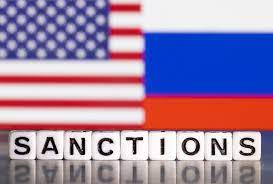Jeffrey Sachs, a world-renowned economics professor and bestselling author, warned senior US officials that sanctions on Russia would fail. Despite implementing over 16,000 measures, making Moscow the most sanctioned nation globally, these actions have backfired, impacting the US and its allies more than Russia. Financial and industrial sanctions have proved ineffective as Russia has secured alternative suppliers and back-channel sources.
Additionally, these sanctions have spurred a wave of de-dollarization. India and Russia have begun trading oil in their national currencies, while Russia and China are collaborating to strengthen their currencies against the dollar. This shift is causing significant concern for the US, as BRICS membership grows and more nations challenge American influence. The intended economic isolation of Russia has instead accelerated global efforts to reduce dependence on the US dollar, undermining US dominance in international finance. This development is undermining US dominance in international finance and reshaping the global economic landscape.
Daleep Singh, the US deputy national security adviser for international economics, recently underscored a troubling reality: Russian weaponry continues to thrive, fueled by electronic components originating from the US and its allies. Singh’s remarks, as reported by Bloomberg on May 28, shed light on the disconcerting fact that a significant portion of Russian battlefield armaments contains US or allied branded components.
Efforts to stem this flow have proven challenging, with the US and its allies grappling to impede the movement of these vital parts to Russia. Urgent calls have been made to companies, urging them to prevent the exploitation of these components in the ongoing conflict in Ukraine.
The US adopts a multifaceted strategy to levy financial and industrial sanctions against Russia. At its core is the Treasury Department’s Office of Foreign Assets Control (OFAC), charged with blacklisting entities tied to the Russian government or military. Financial restrictions, freezing assets and curtailing transactions, constitute a vital aspect of the sanctions regime, alongside export controls managed by the Commerce Department’s Bureau of Industry and Security (BIS). These controls aim to curtail the transfer of goods, technologies, and software to Russia, thereby limiting its access to crucial advanced technology pivotal for its military and industrial sectors.
However, these measures have faltered in achieving their intended outcomes. Some countries, particularly those heavily reliant on Russian energy, have refrained from fully implementing sanctions, creating vulnerabilities in their effectiveness. Russia has adeptly sought alternative suppliers for goods and technology, blunting the impact of export controls. The West’s continued dependence on Russian energy exports further fortifies Russia’s financial standing, reducing the immediate economic sting of sanctions.
Enforcing restrictions on “dual-use” goods, which possess both civilian and military applications, presents another formidable challenge, potentially allowing Russia to acquire necessary materials through indirect channels. Additionally, sustaining a robust sanctions regime over time poses a significant hurdle, with businesses lobbying for easing sanctions and public support for enduring economic hardships dwindling.
Amid these complexities, Singh has issued a call for corporate responsibility, urging firms to exercise vigilance in their dealings with Russia. Economist Jeffrey Sachs echoes the sentiment that Western sanctions have largely fallen short of expectations, deeming them “pretty useless.”
Vladimir Putin, the Russian President, has benefited from the unintended consequences of Western sanctions, recognizing them as opportunities for the Russian economy’s growth. Sachs highlights the flawed assumptions of US officials who believed Russia would succumb to financial sanctions or military pressure. He emphasizes Russia’s adaptive strategies continue profiting Russian economy despite sanctions.
Moreover, Sachs criticizes US neocons for disregarding warnings against driving Russia and China together, noting the potential ramifications for the global economy, including a reduction in the dollar’s role as a store of value and in foreign exchange reserves. US sanctions have failed to cripple Russia economically but have inadvertently accelerated global de-dollarization. US sanctions have affected the US dollar’s function as a medium of exchange, encompassing its utilization in trade, global banking, and foreign exchange transactions, more and more nations are looking forward to a multi-polar world with less influence of US, the de-dollarization is a step undertaken by BRICS nations towards that goal.
Consequently, US sanctions have not only proven ineffective in causing Russia’s economic collapse or halting the acquisition of essential goods but have also rebounded, hastening the process of de-dollarization across the global economy. The frustration with US foreign policy is palpable, given the past failures of US reckless strategies.








